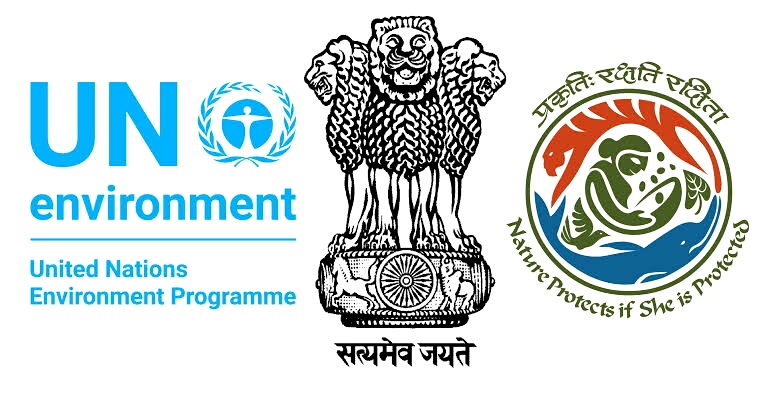NATIONAL, 22 JULY, 2020 (GPN): MOEF & CC notified revised emission norms for Coal-based power plants in the Country specifying limits for SPM, SO 2, NOx and Mercury. Most of the power plants are complying with the prescribed emission norms for SPM, NOx and Mercury. However, majority of them are still far away from meeting the emission norms for SO 2. The timeline for complying these norms was 31 st Dec 2019 for Power plants in Delhi-NCR region and upto Dec2022 for other power plants (various timelines notified for various Captive and Independent Power Plants by CPCB & CEA).
 To control SO 2 emissions from Power plants, Wet lime based FGD technology is selected as the optimum technology by most of the power plants in India and the same is recommended by CEA also. Majority of the coal-based power plants could not adhere to the implementation schedule for FGD installation due to concerns like non availability of technical specifications from Central Electricity Authority till June, 2018; minimum time of 36 months required for implementing FGD after Order placement ;requirement of large capital investment to the tune of Rs. 50 to 80 lacs per MW and the subsequent high recurring OPEX.
To control SO 2 emissions from Power plants, Wet lime based FGD technology is selected as the optimum technology by most of the power plants in India and the same is recommended by CEA also. Majority of the coal-based power plants could not adhere to the implementation schedule for FGD installation due to concerns like non availability of technical specifications from Central Electricity Authority till June, 2018; minimum time of 36 months required for implementing FGD after Order placement ;requirement of large capital investment to the tune of Rs. 50 to 80 lacs per MW and the subsequent high recurring OPEX.In this matter, Veterans Forum for Transparency in Public Life(an NGO)recently filed an Application (OA) in National Green Tribunal (NGT) against MOEF&CC for notifying emission norms for Thermal Power Plants without scientifically assessing their likely impacts on improving the ambient air quality and the likely Environmental Impacts of installation of Wet Lime FGD for controlling SO 2 emissions from Thermal Power Plants.
The NGO through its application requested for review of the present status by MOEF&CC considering that the SO 2 emission norms for coal-based plants notified by MOEF & CPCB were based on two considerations, first to keep SO 2 gas ground level concentrations (GLC) below prescribed safe limit and second to reduce secondary particulate pollutants- Sulfates formed from SO 2 emission from these plants.
Analysis of available air quality data indicates that though the prescribed safe limit of ambient SO 2GLC is 80 µg/m3, the actual GLC is less than 20 µg/m3 in almost all cities and all areas of India. Delhi has SO 2 GLC of less than 20 µg/m3 even during the critical November and December months which are observed as peak air pollution time for national capital region.
It is fact that in presence of favourable meteorological conditions some portion of SO 2 gets converted into Sulfates, the secondary particulate matters . However, till date, there is no detailed study carried out for assessment of which Indian cities and places polluted by Sulfates arising from specific coal-based power plants or other large combustion sources.
Thus, it necessitates to carry out plant specific studies for analysing the contribution the coal-based plant(s) on the air pollution of nearby Cities and Metros.
Enforcing SO 2 emission norms for all power plants in India shall require capital expenditure to the tune of one Lakh Crore Rupees(14 US Billion Dollar)and most of which will go to foreign companies(mostly Chinese) and is approximately 3% of total Forex reserves of the Country (500 US Billion Dollar reserves). Besides all these coal-based power plants shall run out of life over the next 15 to 20 years and some even in less than 10 years thus making this large investment as national wastage without accruing any environmental benefits. (coal-based plants shall be replaced by Green energy).
In addition, Enforcing SO 2 emission norms shall have huge impact on environment by large scale mining and transportation of lime, additional water requirement for FGD, burning of coal to meet the additional 1.5% auxiliary power requirement, pollution due to handling limestone(FGD reagent) and generation of Gypsum(FGD by-product)and transportation and disposal of FGD Gypsum which contains heavy metals and may pollute underground water, besides requiring large land area for disposal, and most importantly, additional release of about 16 Million Tonnes of CO 2per annum.
All, the Wet Lime FGD plants while removing 1 Mol of SO2, produce 1 Mol of CO2a Green House Gas responsible for Global Warming and Climate Change. Thus, solution for one environmental problem leads to another severe environmental challenge, which is global in nature and has far reaching effect on the planet as a whole.
Moreover, each citizen of India shall have to bear the burden of installation of FGD by paying additional power tariff charges of ₨ 0.25 to 0.30 per Unit (Kwhr).
NGT heard the whole matter from the NGO on 14th July 2020 and felt that the matter is more of technical issue and understanding; and considering the facts and figures, NGT advised the NGO through Order to approach CPCB for consideration of their viewpoint.
It is the time for the authorities to review the entire process life cycle considering the negative impacts of FGD on environment like release of CO 2 gas and issues associated with disposal of FGD by-product Gypsum etc. and may take necessary steps to rationalise the implementation of FGD only for those coal-based power plants located in the area where the ambient SO 2 GLC is of real concern. The same shall ensure protection of the environment while abating environmental impacts through reduced and controlled CO 2emissions. ENDS


Be the first to comment on "NGT refers FGD deferment matter to Central Pollution Control Board"